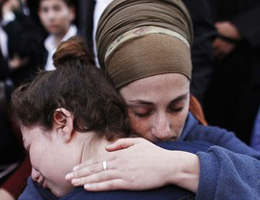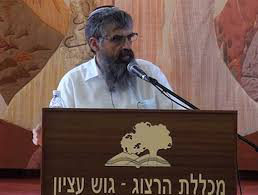First Step
Understanding the Conflict
 The real conflict in the Middle East is whether this will be a region where human life and peace are valued for their own sakes or one where people are taught to hate and murder under the guise of religion and nation. Until peace and human life are widely valued, formal peace agreements are unlikely to be implemented and even less likely to be maintained. But when love of peace and life are the norm, even deep-seated disagreements are unlikely to receive violent expression. Read More
The real conflict in the Middle East is whether this will be a region where human life and peace are valued for their own sakes or one where people are taught to hate and murder under the guise of religion and nation. Until peace and human life are widely valued, formal peace agreements are unlikely to be implemented and even less likely to be maintained. But when love of peace and life are the norm, even deep-seated disagreements are unlikely to receive violent expression. Read More
Many regional actors, including Hamas, Al-Qaeda, ISIS, Iran and Hezbollah, understand the nature of the conflict and are working hard to win. Israel, sadly, has yet to even show up for this battle of ideas.
Second Step
Understanding our Role in the Conflict
 Our very raison d’etre as a nation is to facilitate improved spirituality and moral behavior of all peoples. Read More
Our very raison d’etre as a nation is to facilitate improved spirituality and moral behavior of all peoples. Read More
However, many Israelis are currently being educated to be indifferent to the moral behavior of Arabs and Muslims. Our failure thus far to own our essence is not only a squandering of a long-awaited opportunity, but it is contributing to a sense of confusion, polarization and despair in an Israeli society that is no longer sure what we are doing here.
Much of the world intuitively understands what we have recently been working hard to repress: that the reemergence of a sovereign Israel should bring moral benefit to the whole world.
Third Step
From New Mindset to Tangible Peace
There are two major ways in which widespread Israeli internalization of our essence can eventually lead to real peace in the region.
The change in mindset will direct creative energy towards finding many diverse ways of positively influencing the attitudes of our fellow Middle-Easterners. Read More
As emphasized in our religious tradition, prayers, tears and feelings can have considerable cosmic influence in their own right.




